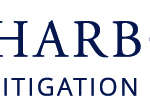Patrick Gearon and Georgina Munnik discuss how Bahrain has played an important role in the development of the international dispute resolution sector
The GCC region has, in recent years, seen significant development of the international dispute resolution sector. The Kingdom of Bahrain in particular has played an important role in the development of the sector in the region since the formation of the Bahrain Chamber for Dispute Resolution (the BCDR) which was established by Bahrain Legislative Decree No. 30 of 2009 as amended by Legislative Decree No. 64 of 2014. The BCDR has gone on to further establish itself as a dispute resolution institution through a joint venture between the Bahrain Ministry of Justice and the American Arbitration Association, launching new arbitration rules to establish best practice for arbitrations in the Kingdom. The BCDR Rules 2017 came into effect on 1 October 2017.
Case background
At the time of this matter, there had been only four arbitrations held in the BCDR and none pursuant to the new 2017 Rules. Notably this case was the fifth arbitration for the BCDR and the first to be held in accordance with the 2017 Rules. The case was in relation to a multi-million USD inter-bank Islamic finance dispute which arose out of an Unrestricted Wakala Agreement (an inter-bank investment agency agreement) entered into between a Conventional Wholesale Bank (claimant) and an Islamic Wholesale Bank (respondent). The dispute is one of the most significant inter-bank disputes in Bahrain in recent years and the largest ever conducted by the BCDR (with claims and crossclaims of over USD$30m). It is also the first inter-bank Islamic finance dispute to be the subject of a BCDR Arbitration.
The matter was multi-jurisdictional at its core with the BCDR being the arbitral institution and the laws of England and Wales governing the agreement. The seat of the arbitration was Bahrain.
We represented the claimant in this case under article 6 of the Bahrain Arbitration Law, which provides for international counsel to represent parties in arbitration cases where there is an international element. This in and of itself is ground-breaking for a jurisdiction that has not previously permitted international law firms to represent or advise parties on contentious Bahrain matters.
Case significance
This arbitration clearly demonstrates how disputes seated in the Middle East can be effectively resolved under the laws of England & Wales regardless of the choice of seat. This case also has important regulatory considerations with the parties being both licensed under the Central Bank of Bahrain regulatory regime but carrying out different licensed activities. Such a case required intimate knowledge of the conventional and Islamic finance sectors and regulatory requirements.
With the agreement being Shari’ah compliant yet subject to the laws of England and Wales and the lex arbitri being the laws of Bahrain, demonstrating a knowledge of the differing systems of law which were not always compatible was a crucial element of the case. The various defences advanced by the respondent included complex arguments of English law together with considerations of the principles of Shari’ah. Various (often lengthy and onerous) applications and objections were raised by the respondent throughout the case.
Coupled with this and the potentially juxtaposing legal positions, there were also allegations of complex shareholder fraud involving further jurisdictions and intricate company structures which required coordination across our firm’s practice divisions and regional offices throughout.
Reflective of the arbitral institution and laws which governed the disputed agreement, every element of the case was complex and cross-jurisdictional. The parties, witnesses and experts were in Bahrain and Dubai (appearing from the BCDR and the claimant’s premises), whilst the members of the Tribunal sat in Lebanon, Egypt and London. The transcribers attended remotely from England.
This arbitration clearly demonstrates how disputes seated in the Middle East can be effectively resolved under the laws of England & Wales regardless of the choice of seat.
In addition to the various technical legal considerations of this case, additional care had to be given throughout to both the attendance at hearings and the management of the matter which fell neatly into the first onset of the global Covid pandemic. Continued high-level project management, including extensive disclosure requests and document management procedures, was required together with ongoing co-ordination between the parties and the Tribunal to ensure that the various applications and objections made throughout this matter were aligned, together with the practicalities of managing the final hearing through this firm’s own virtual platform.
As noted above, in addition to the standard format of the proceedings, the five-day final hearing was held virtually with this firm providing the online platform and IT support to ensure that the evidential hearing could proceed without delay. With entirely virtual hearings previously rarely implemented (especially for matters of this nature) the arrangement and coordination of the same was innovative and undertaken predominantly by means of a rigorous remote hearing protocol covering every aspect of the hearing from timetabling to management of parties in attendance at any given time and break out rooms for instructing parties and witnesses.
A cohesive and unified approach allowed client expectations to be met whilst simultaneously managing a constantly changing complex legal matter.
Final judgment
The final award was issued in July 2021 and is entirely in our client, the claimant’s, favour, awarding each part of the claimant’s claim and dismissing the totality of the respondent’s defences. The Tribunal also ordered a 90% costs award in our client’s favour. Enforcement is currently ongoing in the Bahrain court’s and our client has successfully defended an application to the Bahrain High Court to set aside the Tribunal’s findings, which is further evidence of the development of the Bahrain legal system and its acceptance of its statutory role in enforcing Arbitral Awards.
Conclusions
Not only is this matter of importance to the banking community in relation to the proper resolution of high-value, complex and multijurisdictional inter-bank disputes (including technical Shari’ah principles), but it also demonstrates the great strides that Bahrain’s legal system has taken in recent years in relation to arbitration, cross jurisdictional matters and the acceptance and enforcement of arbitral awards (both issued abroad and at home).
In respect of the significance to the legal community globally, at a time of great uncertainty, this case is an example of the ability we have to adapt and strengthen (perhaps, some may say, improve and streamline) the current processes governing the way in matters are managed and concluded at hearings.

Patrick Gearon
Partner, head of Middle East, Charles Russell Speechlys LLP
E: Patrick.gearon@crsblaw.com

Georgina Munnik
Senior associate, Charles Russell Speechlys LLP
E: Georgina.munnik@crsblaw.com












